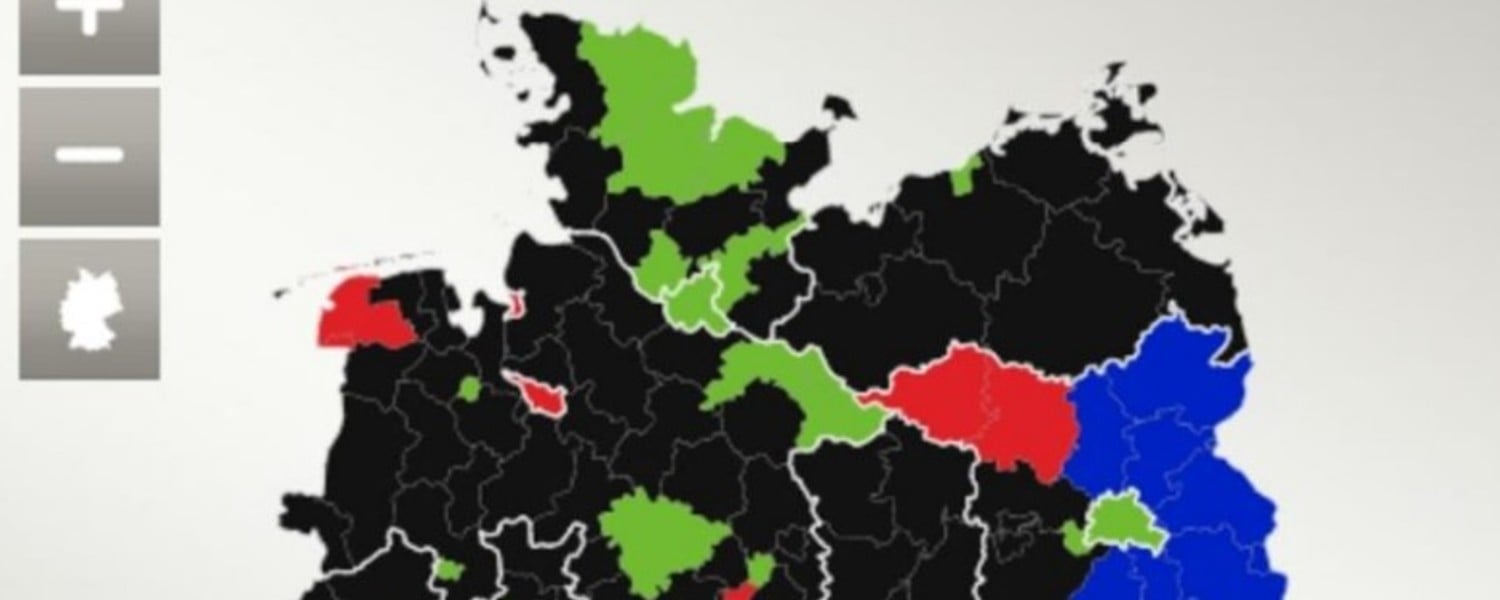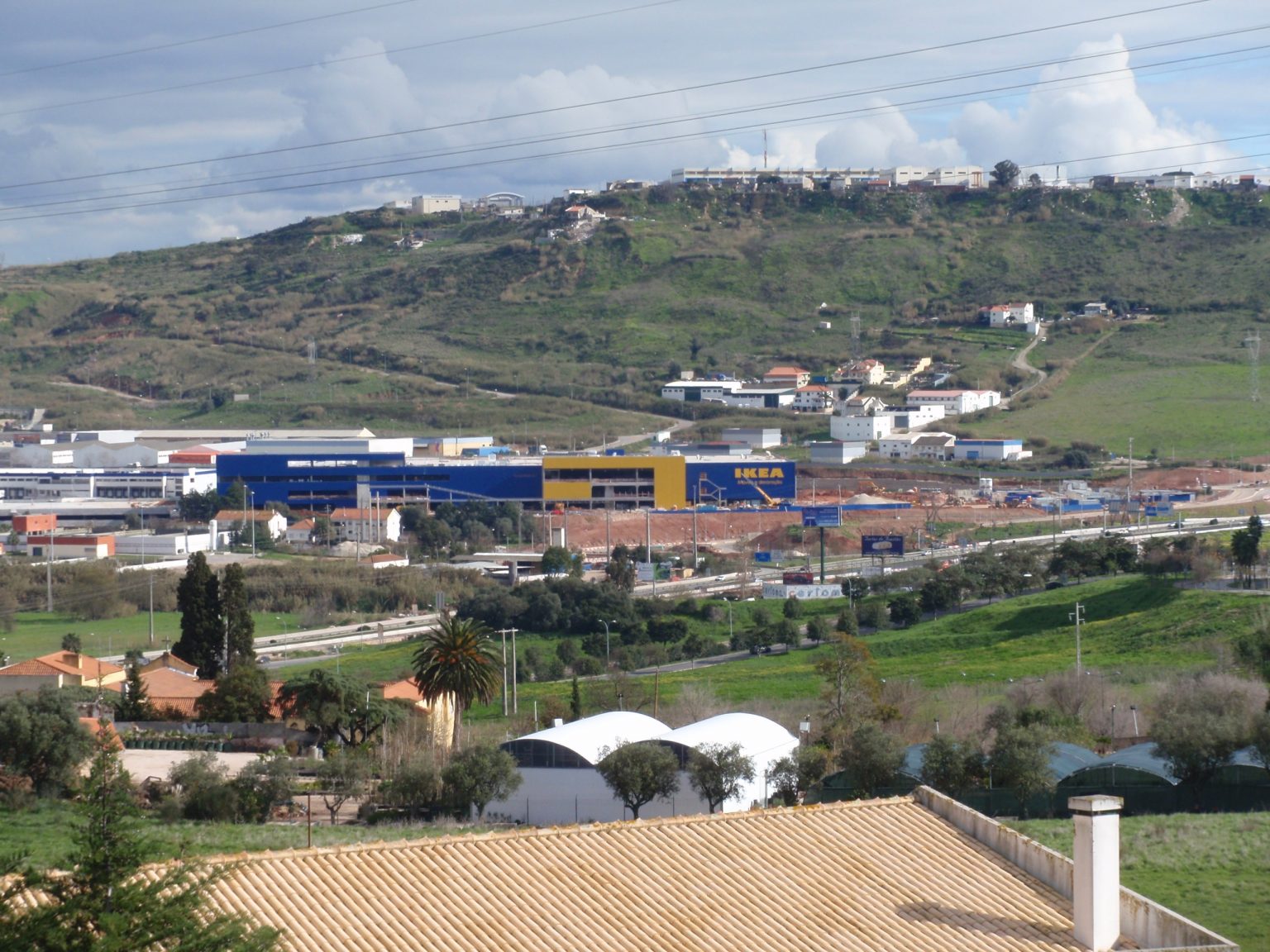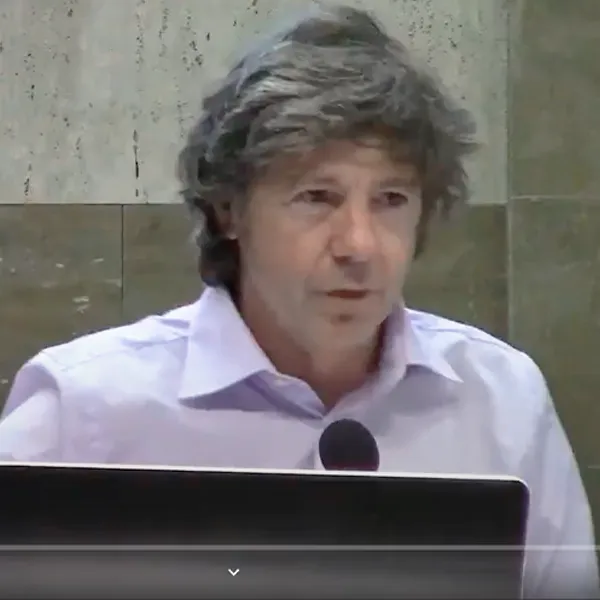A large black sea with small, green, urban islands, while in the middle of nowhere red ones, and a peripheral blue area, towards the East – this is what Germany’s election map looks like after the last European elections.
It was an undisputed success for the Greens with unprecedented outcomes. Moreover, many polls currently indicate them as winners of federal parliamentary elections, with about 1-2% above the Christian Democratic Union (CDU) party, if elections were to take place during this period. This is undoubtedly a watershed moment in Germany’s political history in which traditional parties are losing massive ground; votes basically go in two directions, either to the Greens or to the far-right Alternative for Germany (AfD).
One thing is certain, the Greens won all over big metropolitan areas and are particularly popular in rich cities, such as Hamburg, Munich (capitals of the third and seventh richest European regions), and Stuttgart. Another similarly certain fact is that their stronghold is in the Western European core, namely Germany, France and Great Britain. They are quite weakly represented elsewhere in Western and Northern Europe, and completely nonexistent in the East, which would be most in need of them (we’ll see why later).
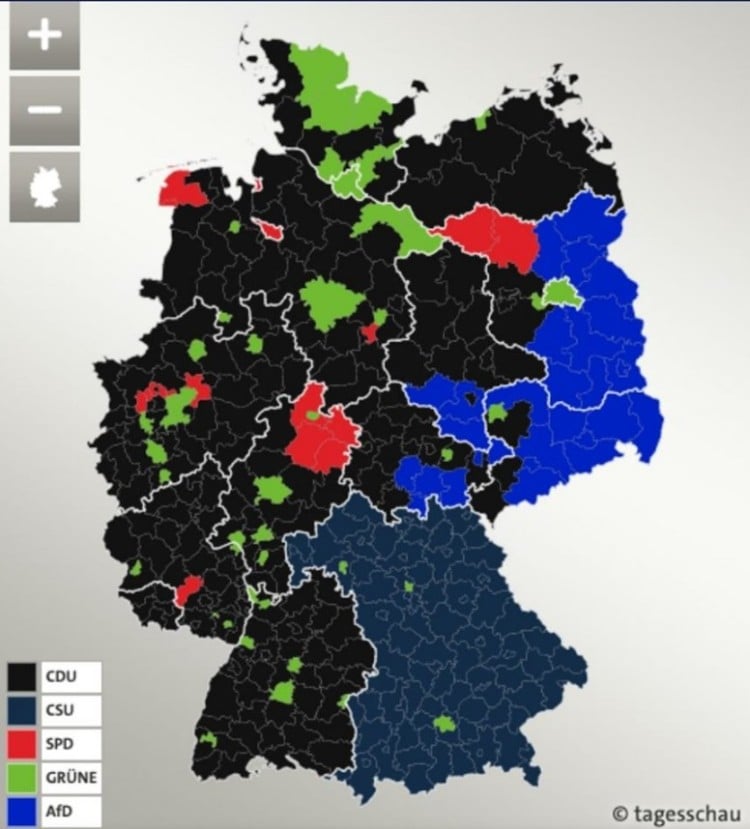
Before making an overview of their political agenda and history in Germany, it is worth recalling a recent article in Der Spiegel about Katharina Fegebank, Greens’ leader in Hamburg, their powerhouse in Germany. It portrays the young woman in an interesting manner in her pursuit to become Hamburg’s mayor. Her public appearances and opinions are a melting pot of everything: A bit of opportunism, sometimes kitschy, such as when she is singing carols and telling stories at the Christmas fair, or when supplying the pilgrims at Helmut Schmidt’s funeral with hot coffee. And a bit of ambivalence, especially in her attitude towards Olaf Scholz (the Mayor of Hamburg during the G20 protests in 2017, meanwhile the Finance Minister), first partnering with him and the local Hamburg government in organizing the summit, but then switching sides and vehemently criticizing him as the protests and the situation escalated. The key words to describe her political commitments are “vernünftige Mitte” – a rational political centrism: awareness of the existing social problems and trying to fight them, regardless of if that would mean coalitions with conservatives or with corporate money, just as Winfried Kretschamann, her political model, succeeded in doing in the Baden-Württemberg state.
What does their agenda cover?
On matters of environment, the targets of 45% renewable energy produced by 2030, and even 100% by 2050 within the European Union are at the forefront. This bold plan should be funded, on one side, by a new institution, a kind of pan-European environmental agency, and the money should come from Member States’ contributions: “Better to put 0.7% for pan-European projects and even global environmental, than 2% for army and arming” referring to NATO contributions. On the other side, funding is to be achieved via taxation (from fossil fuels, IT giants and by better control of tax havens across the EU). Obviously, a European Finance Ministry is needed for this and is another proposal on their agenda.
Concerning European institutions, it is widely recognized that the European Parliament plays a rather insignificant role in proposing laws, and because of this a “democratization” of the institution is required. How this must happen is not clearly specified, but they are certain that “better communication between national and European parliaments is needed.”
With regard to international trade agreements and workers’ protections, they are clearly anti-TTIP, anti-CETA, at least in their current forms, and mention that the World Trade Organization “must comply with the provisions of the International Labor Organization.”
A Minimum European Wage is also mentioned but with no indication of how it could be adjusted according to the local standard of living.
All in all, the program is a mix of chic formulations, focused on very pressing, current topics, presented from relatively adversarial positions, in the sense of challenging the actual establishment, but not too suddenly so as not to disturb it.
They have indeed moderately left-wing approaches, but without pointing out and criticizing problems’ origins and causes. This rhetoric can easily be confused with the former ALDE European Party (currently ReNew Europe), perhaps with the difference in that they lack Mr. Verhofstadt’s (leader of the former ALDE European Party), stance: “Why do we not have our own European Google?” It is intelligent political marketing done by the Greens, who realize that political dualism, popular vs social-democratic parties, is about to end and something will have to fill the void. Definitely there are vital and very necessary aspects in their agenda, especially the ones appealing to a stronger environmental agency and financial solidarity to support it. It has undoubtedly something of the internationalist tone of the left, and the need to address the problem globally, as opposed to the typical economic growth-seeking, neo-liberal mercantilism.
The critical tone towards the Euro crisis and current economic downturn plaguing Southern Europe lacks pointing out the real perpetrator, namely the great Franco-German financial capital. In the discussion of refugees and economic migration, there is no mention of intra-European migration and the massive depopulation of skilled labor in countries such as Romania and Bulgaria or its causes.
When it comes to air quality and pollution, there is no mention in their program of blatant differences between the two sides of Europe, East and West. Measures of the European Air Quality Monitoring Agency clearly show that the iron curtain has not fallen at all from this point of view.
Concerning the European Minimum Guaranteed Income, a very fashionable topic, it is hard to understand how a “rational political center” differs from Davos’s speech, and is entirely in his favor, too.
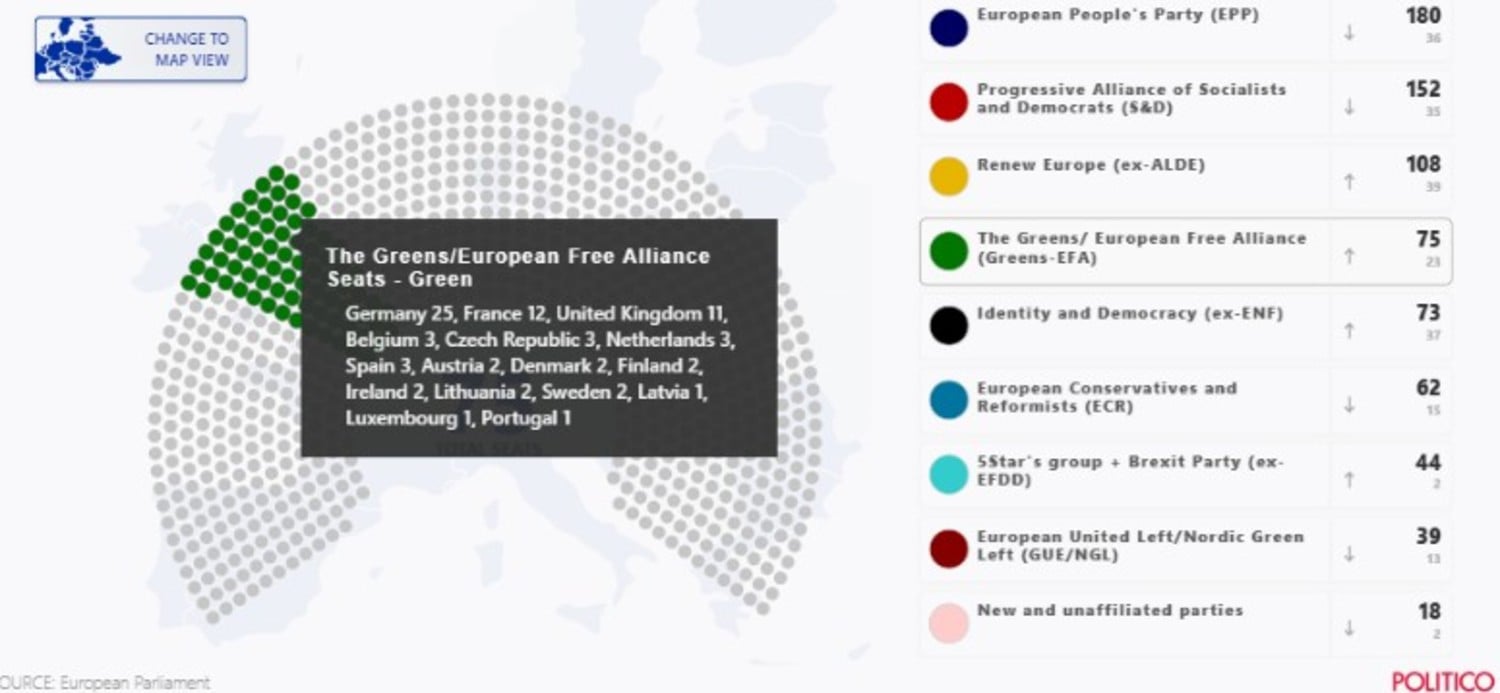
A little bit of history about their founding and evolution in Germany
Their history as a party, begins in January 1980 when several left-wing politicians from the then-opposition, human rights, anti-armament and nuclear activism camps, met at the first congress in Karlsruhe. However, the roots of the party are to be found much earlier, in the protests of 1968 and in the civic initiatives and student movements that arose from those protests. It could be that they are now very loved in big metropolitan areas and rich cities, but at that time the first party assemblies and even the first political successes were recorded in the rural Baden-Württemberg (in Karlsruhe, as I mentioned). On March 16, 1980 they entered the regional parliament for the first time.
In the 1983 federal elections, helped by the collapse of the social-liberal coalition led by Helmut Schmidt, they acceded to the Bundestag (Federal Parliament) for the first time and from then onwards problems and “fratricide” clashes started to pop up.
Since then, the Greens have been continuously present in the parliament. Their program and party structure have been fundamentally molded by the two factions within them: Realos and Fundis. Before briefly narrating about them, it is worth mentioning that there were moments in the history of the party, and indeed not few, in which the party was so divided along the two fault lines that it was at risk of breaking apart.
Realos is the faction willing to compromise on the agenda and is open to negotiating with other parties to form coalitions and even governments. The most prominent political figures from this faction are Joschka Fischer, Cem Özdemir and Winfried Kretschmann.
Fundis, or the fundamentalists as they are called, are the radical left faction (in contrast to the “rational center” I was talking about) that does not want to give up the basic principles of the party’s founding. These are: disarmament, NATO abolition, eco-socialism, rotation principle, and especially, in terms of internal politics, total refusal to co-opt with traditional parties, SPD and CDU. In addition, Jutta Ditfurth and Rainer Trampert (none of them are widely known at the European politics level, unlike the Realos leaders), members of the Communist League from former West Germany to the Jusos anti-revisionists (Socialist Youth) also comprise the Fundis.
Apart from those already nominated, there are characters like Hans-Christian Ströbele, who is very vocal about the scandal of Edward Snowden’s revelations, even proposing that he be given German citizenship as well as political asylum. Or Jürgen Trittin: To a great extent the mastermind of Germany’s national plan of gradual nuclear phasing out; when he was minister of the environment, could not actually be called Fundis, but on many occasions supported their views and positions.
The most illustrative one belongs to Winfried Kretschmann, who for over eight years, has cultivated a very cosy relationship with the CDU in Baden-Württemberg, but also with the automotive industry giants in the area, Daimler and Porsche. Empathy for them, as well as downplaying their responsibility during the German emissions scandal and even partially lobbying for them, are stances that would make anyone wonder: What connection is there between Kretschmann and the Greens’ founding principles? What could stop actually Zetsche, until recently the Daimler CEO, from being a Greens’ leader?
Cem Özdemir is another “remarkable” Greens’ character that many of those who were among the party’s original members have every reason to be disappointed in. He is in a way the embodiment of the socio-cultural integration model of the Turkish community. From gastarbeiter (guest worker) parents, he succeeded in propelling himself onto the big stage of German politics.
His position in relation to the big European debates eloquently conveys the entire policy position of the Greens and is namely liberal. He is a great advocate of Macron’s proposal to strengthen Europe’s economic and military power around the Franco-German core, urging Angela Merkel “not to leave France waiting with an outstretched hand.” Of course, in the above linked Politico article, in addition to presenting the relatively stereotypical illustration of present-day European big issues, ranging from “illiberal regimes in Poland and Hungary”, “the violent and chaotic yellow vests protests”, there is in the background the acceptance of the fact that Italy and Greece cannot cope by themselves with the refugee crisis (undoubtedly without mentioning that they are now passing through probably one of the harshest recessions in their history), and also the issue of the environment, the main trigger for most of the forced migration worldwide.
Altogether, Özdemir’s message to Europe as well as to Germany, edifying for the Greens, is a clear one: political realism and openness to the “center”, otherwise all of us will lose to the AfD, seen somehow as their main competitor to fill the gap left by traditional parties, which will continue to widen.
It is hard to predict what trajectory the Greens will have in the future. It will definitely be shaped on one side, by their willingness for compromise and also to win votes, and on the other, by their goal to implement an ecological agenda capable of preventing the current unmistakable climate catastrophe. For now, with only 80,000 members across Germany, they are still a small party compared to the SPD, with over 400,000 members, but outperformed the SPD by far in the last European Parliament elections. It remains to be seen to what extent the Greens are willing to ride on the opportunism of speculating on climate change, a subject of capital importance, in an attempt to attract voters disappointed by traditional parties, instead of integrating into their agenda the fact that climate change is intrinsically related to the existing socio-economic system. It is not only about buying electric cars, avoiding plane travel, recycling plastic bags, and no longer eating beef to avoid a climate catastrophe. All of this is related to a way of production, distribution and consumption, integrated into an economic system based, to a large extent, on profit, permanent economic growth and labor exploitation. A watershed moment in the global ecosystem also involves a reconsideration of these economic issues, and steering the public attention towards those who have the power and influence to brake, or even to reverse course.
